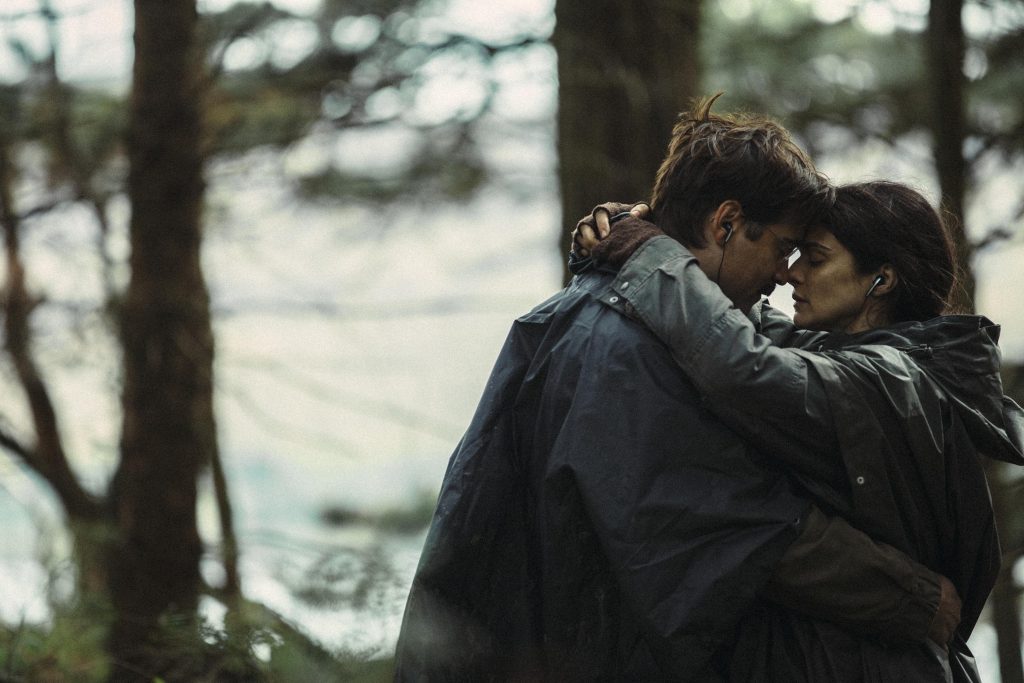Love and Horror, by Josh Long
11 May
From the first moments of The Lobster, we know the kind of disturbingly comical ride we’re in for. A woman drives through the rain in silence. She stops in a field of donkeys, gets out of her car, shoots one of the donkeys in the head, and returns to her car, all in one shot. We will not see this woman again, but her actions come to mean more as we are assimilated into the strange dystopian world of the film. As he did with 2009’s notorious Dogtooth, director Yorgos Lanthimos creates a singularly fascinating world, alternately filled with humor and dread.
I’ll start off with going into the plot, but would say that I think this is a film that benefits from having no idea what’s going on until the filmmaker decides to reveal it. So if you haven’t seen the trailer and are interested in a movie about love in a quasi-sci-fi dystopia, you might want to skip the next paragraph – or the review altogether. If you don’t mind minor spoilers (I promise never to ruin a movie for you) and would like to know more about the movie – read on.
David’s (Colin Farrell) wife has just left him, and in this dystopian society, people are required to have a “partner.” Those without partners are sent to a hotel where they are encouraged to find a mate and reintegrate into society. If they do not do so within the allotted time, they are turned into animals. David (who has chosen a lobster as his animal) sadly finds himself continually unable to find a suitable match, and as his time comes to and end he becomes desperate. He eventually flees the hotel and joins the “loners,” people who live in the woods and are ideologically opposed to love and romance. In a polar opposite of the hotel, their community severely punishes anyone found to be engaged in any kind of romance. David finds himself between a rock and hard place when he begins falling in love with a Short-Sighted Woman (Rachel Weisz).
The conceit of The Lobster is humorous, to be sure, and the filmmaker knows when to lean into the humor. There are plenty of laughs to be had from David’s pathetic attitude and the deadpan delivery that comes with it. But the film often and suddenly swings into the realm of the horrific. This is not a safe world to live in, and whenever we get comfortable with the comedy, the filmmaker sharply reminds us that things are not as they should be. The strangeness of the world is highlighted by the performances – actors throughout are stiff and passionless. They often describe inane, pointless things in exorbitant detail and with no emotion. Everything sets the audience back on our heels, then draws us back in, to see a universe where natural emotion and communication have been so drained from society that people don’t even know how to interact anymore. David and the Short-Sighted woman have to invent a sort of baseball signals language in order to even communicate.
Wrapped up within this strange little film world are interesting questions about the nature of love and connection. Love and romance are important, but how important are they? The Lobster shows us what happens when love and romance become of ultimate importance. There’s a happy veneer on all things, like the fancy clothes, fine meals, sports and yachts of the hotel. But underneath there is fear and misery, plainly written on the faces of every new “guest.” On the other side of the spectrum are the loners, whose opposition to their society’s views of romance is so strong, they are willing to destroy their own. These two camps, both living out extremes with no one to balance them, symbolize equally dysfunctional views about love, marriage and interpersonal relationships.
When such extreme ideas have permeated the fabric of culture, they leave no place for the people of that culture. No one in the film is happy – their world can’t allow them to be. Even their relationships, the most important things in their lives, can disappear suddenly (practically everyone at the hotel comes from a recently ended relationship – some from divorce, others from death). When this happens, they lose their individuality (David is the only person in the film who is given a name – the others go by descriptions; Limping Man, Nosebleed Woman, Lisping Man), and ultimately their humanity, quite literally. It’s no wonder that every person we meet is lost, unhappy, frustrated, and miserable. Fortunately, in the great tradition of absurdism, the film finds the comedy in the bleak extremes this dystopia presents. Also it should be noted that the filmmaker is careful not to disdain love altogether – he shows us the nobility in the characters that are willing to risk anything for each other.
A unique vision, an alternately frightful and hilarious story, and strange but poignant performances make The Lobster a stand out film. A qualification: some of the more horrific moments shouldn’t be downplayed (especially to folks sensitive about violence toward animals), there is true darkness in the film, which is one of the things that gives it its strength. That being said, if you’re willing to take the ride, expect the best and the worst – it’s worth it.




No comments yet